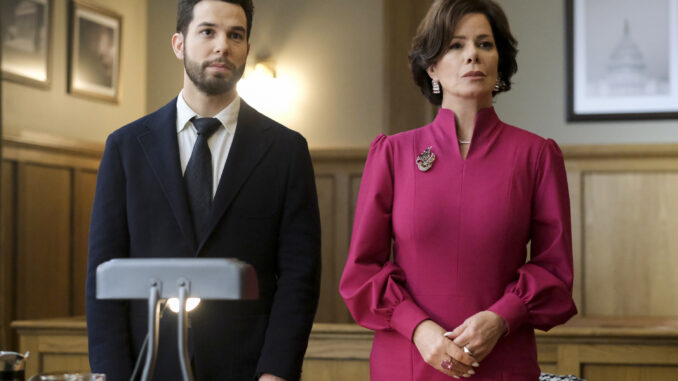
The Unfinished Symphony: When the Curtain Falls Too Soon on So Help Me Todd
There's a unique sting in the sudden silence that follows a vibrant performance cut short. It's the abrupt halt of a narrative, a story left mid-sentence, its characters suspended forever in the dramatic tension of a cliffhanger. For fans of CBS's quirky legal dramedy, So Help Me Todd, that silence wasn't just deafening; it was a betrayal, a narrative rug pulled out from under their feet just as the plot thickened. The announcement of its cancellation, particularly with its second season ending on a precipitous narrative edge, ignited not just disappointment but a fervent, unified demand for reconsideration – a digital roar echoing in the hollow chamber of corporate decisions.
So Help Me Todd was never a show screaming for critical accolades or groundbreaking television. Its charm lay in its comforting predictability, its witty banter, and the genuinely engaging dynamic between the titular mother-son duo, Margaret and Todd Wright. Marcia Gay Harden's poised, by-the-book lawyer, Margaret, and Skylar Astin's charmingly chaotic private investigator, Todd, offered a delightful juxtaposition, their professional and personal lives intertwining in a comforting, weekly rhythm. It was the kind of show you looked forward to after a long day – a reliable source of clever legal shenanigans and heartfelt family moments, a comforting orbit in the often-turbulent world of prestige television. Viewers invested in their growth, their unresolved romantic tensions, their quirky colleagues, and the ever-present mystery of their past.
Then came the final episode of Season 2. Without warning, it became the series finale. The show had carefully constructed a complex web of character development and plot threads, culminating in what promised to be a dramatic turning point. Relationships hung in the balance, professional futures were uncertain, and the overarching narrative that had subtly woven through the season reached a crescendo, poised to explode into new storylines. Viewers, perched on the edge of their seats, watched as the screen faded to black, anticipating resolution, or at the very least, a tantalizing glimpse of what was to come. Instead, they were met with the cold, hard reality: this was it. The narrative scaffolding collapsed, leaving characters and storylines dangling in an unresolved void, a symphony unfinished.
The reaction was immediate, visceral, and digital. The internet, a vast echo chamber of collective emotion, swelled with a chorus of disbelief and frustration. Social media platforms became battlegrounds of advocacy. Hashtags like #SaveSoHelpMeTodd and #RenewSoHelpMeTodd began trending, fueled by furious typing and impassioned pleas. Petitions materialized, gathering thousands of signatures in a matter of hours, then days. Fans shared their favorite moments, reminisced about the characters, and, most importantly, articulated their sense of injustice. They weren't just demanding more episodes; they were demanding narrative closure, the fulfillment of an unspoken contract between storyteller and audience. They argued for the show's loyal, if not massive, fanbase, its critical appreciation (often hovering in the positive range), and its unique niche in the network landscape. This wasn't just a cancellation; it was, for many, a broken promise.
This outcry, while specific to So Help Me Todd, is emblematic of a larger phenomenon in the modern television landscape. In an era dominated by streaming platforms and ever-shifting viewing habits, traditional network television faces immense pressure to perform, to justify every minute of airtime with hard data: ratings, demographics, advertising revenue. Business decisions are ruthless, often made by algorithms and spreadsheets that fail to account for the intangible value of emotional investment, community building, or the simple joy a show brings to its audience. For CBS, the numbers likely didn't add up to warrant a third season, regardless of the quality of the show or the loyalty of its viewers. The network, in essence, weighed the potential future profits against the guaranteed costs and made a calculated choice.
Yet, the fervent, organized demand from the fans of So Help Me Todd serves as a poignant reminder that television, at its heart, is more than just a product; it’s a cultural touchstone, a shared experience, and for many, a source of comfort and connection. While the chances of a reversal are slim – networks rarely backtrack on such definitive decisions – the collective voice of the fans isn't futile. It's a statement, a testament to the power of shared passion, a ripple in the vast ocean of entertainment that reminds the corporate behemoths that behind every viewership statistic is a person, invested and eager for the next chapter. The silence may persist for So Help Me Todd, its story forever paused at the precipice. But the echo of the fans’ outcry – a plea for resolution, a demand for respect for their investment – will continue to resonate, a potent, unfinished symphony in itself.
